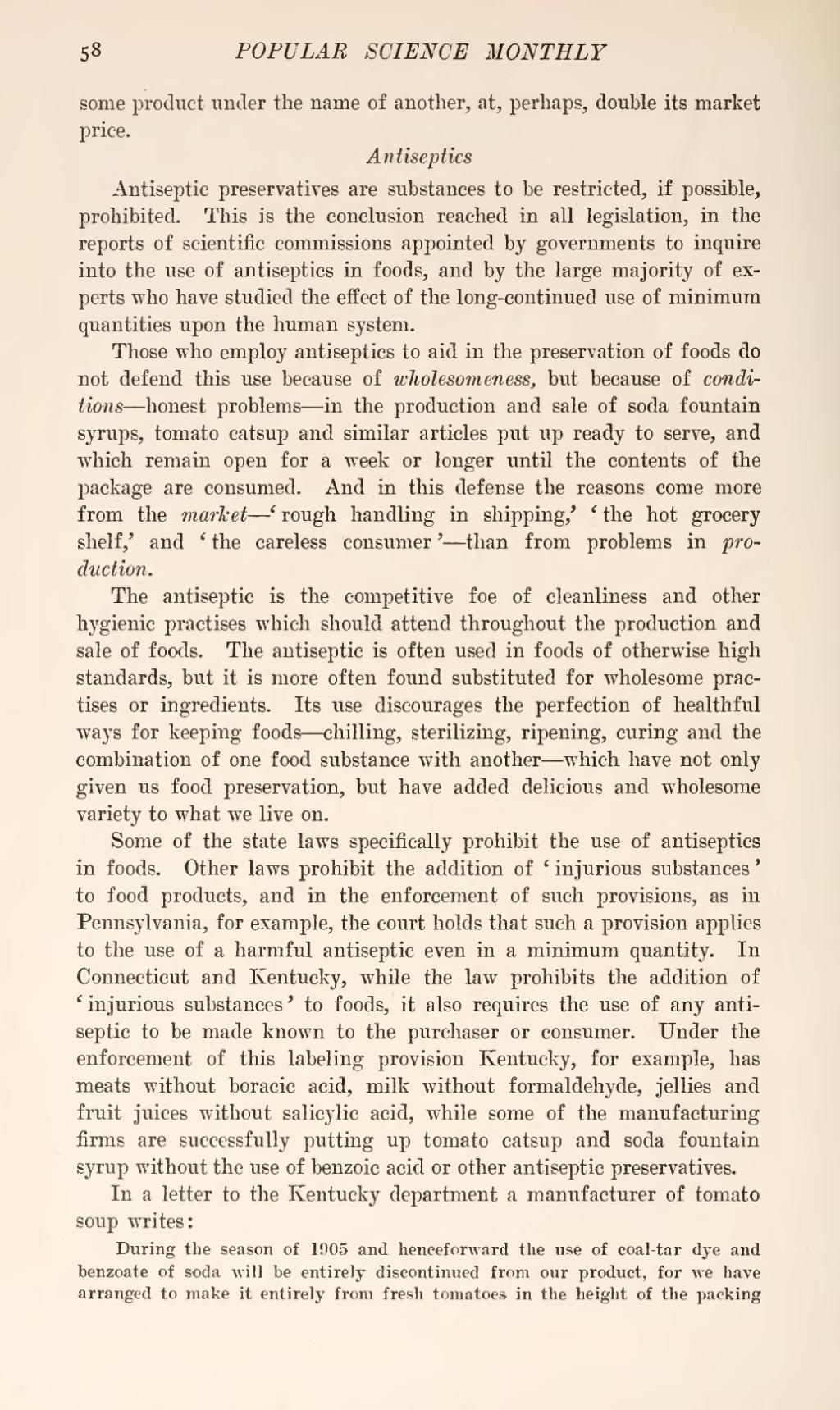some product under the name of another, at, perhaps, double its market price.
Antiseptics
Antiseptic preservatives are substances to be restricted, if possible, prohibited. This is the conclusion reached in all legislation, in the reports of scientific commissions appointed by governments to inquire into the use of antiseptics in foods, and by the large majority of experts who have studied the effect of the long-continued use of minimum quantities upon the human system.
Those who employ antiseptics to aid in the preservation of foods do not defend this use because of wholesomeness, but because of conditions—honest problems—in the production and sale of soda fountain syrups, tomato catsup and similar articles put up ready to serve, and which remain open for a week or longer until the contents of the package are consumed. And in this defense the reasons come more from the market—'rough handling in shipping,' 'the hot grocery shelf,' and 'the careless consumer'—than from problems in production.
The antiseptic is the competitive foe of cleanliness and other hygienic practises which should attend throughout the production and sale of foods. The antiseptic is often used in foods of otherwise high standards, but it is more often found substituted for wholesome practises or ingredients. Its use discourages the perfection of healthful ways for keeping foods—chilling, sterilizing, ripening, curing and the combination of one food substance with another—which have not only given us food preservation, but have added delicious and wholesome variety to what we live on.
Some of the state laws specifically prohibit the use of antiseptics in foods. Other laws prohibit the addition of 'injurious substances' to food products, and in the enforcement of such provisions, as in Pennsylvania, for example, the court holds that such a provision applies to the use of a harmful antiseptic even in a minimum quantity. In Connecticut and Kentucky, while the law prohibits the addition of 'injurious substances' to foods, it also requires the use of any antiseptic to be made known to the purchaser or consumer. Under the enforcement of this labeling provision Kentucky, for example, has meats without boracic acid, milk without formaldehyde, jellies and fruit juices without salicylic acid, while some of the manufacturing firms are successfully putting up tomato catsup and soda fountain syrup without the use of benzoic acid or other antiseptic preservatives.
In a letter to the Kentucky department a manufacturer of tomato soup writes:

